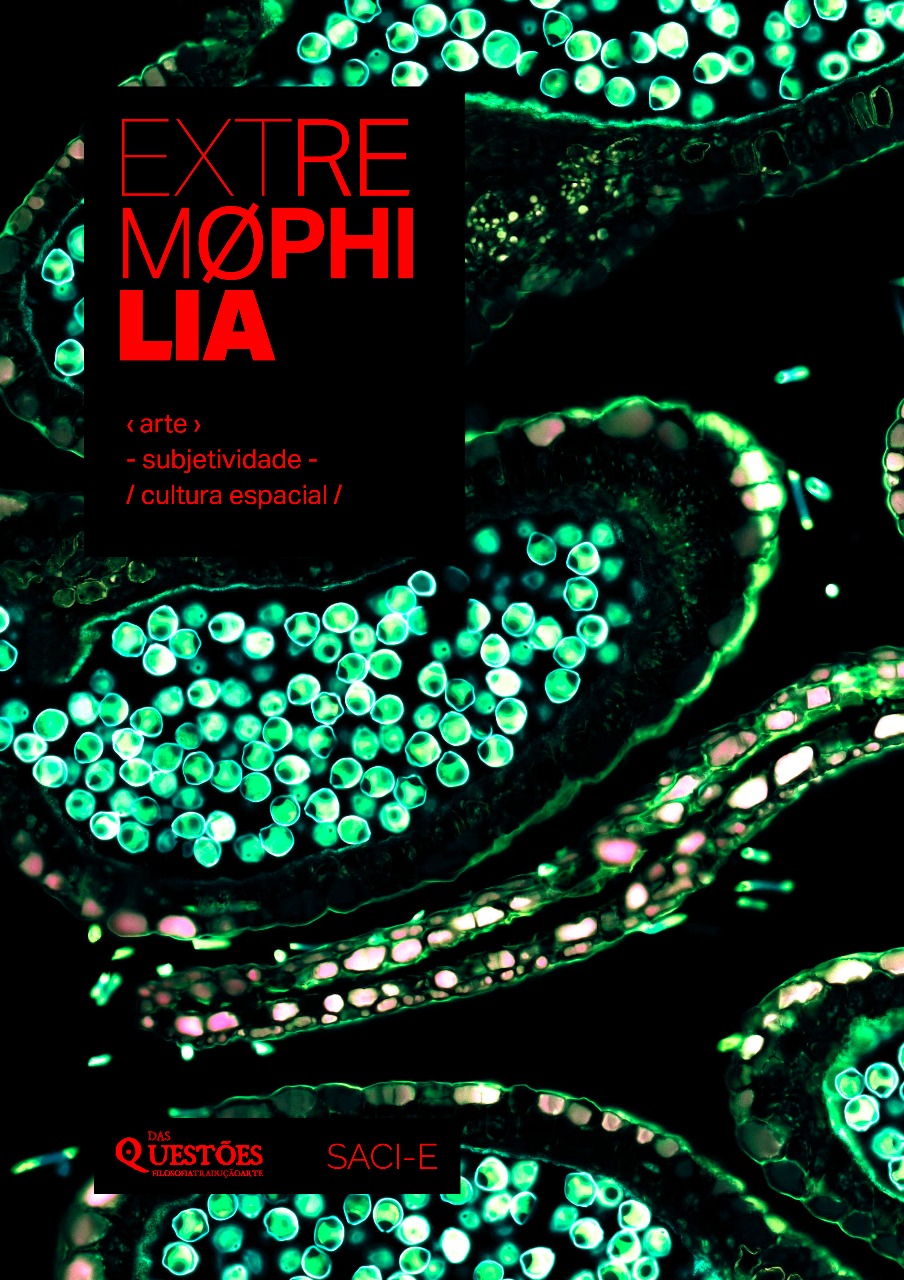O futuro será negro ou não será Afrofuturismo versus Afropessimismo - as distopias do presente
Main Article Content
Abstract
Departing from the debate on the concepts of Afrofuturism and Afropessimism this paper questions the place of contemporary Black narrative dystopias (in Cinema, Music and Literature); therefore, it discusses artistic works in which Black protagonists shift the ideas of dystopia and apocalypse from future temporality. Through Black social theory and critique, these works strengthen a post-apocalyptic reading of the present, when all that remains is precariousness as a way of life, given that the end of the world has already happened.
Article Details
Section
Authors who publish in this journal agree to the following terms:
Authors maintain the copyright and grant the journal the right of first publication, the work being simultaneously licensed under the Creative Commons Attribution License which allows the sharing of the work with recognition of the authorship of the work and initial publication in this journal.
Authors are authorized to take additional contracts separately, for non-exclusive distribution of the version of the work published in this journal (eg publish in institutional repository or as a book chapter), with acknowledgment of authorship and initial publication in this journal.
Authors are allowed and encouraged to publish and distribute their work online (eg in institutional repositories or on their personal page) at any point before or during the editorial process, as this can generate productive changes as well as increase the impact and the citation of the published work.
How to Cite
References
Aarons, K (2016). No selves to abolish - Afropessimism, anti-politics, & the end of the world. Berlim: Ill Will Editions.
Dery, Mark (1994). “Black to the future: interviews with Samuel R. Delany, Greg Tate and Tricia Rose” in Flame Wars: the discourse of cyberculture. Durham: Duke University Press.
Dillon, Stephen (2013). “‘It’s Here, It’s That Time’: Race, Queer Futurity, and the Temporality of Violence in Born in Flames” in Women & Performance: A Journal of Feminist Theory 23, no. 1, pp. 38”“51.
Freitas, Kênia (2017). “Roubando Dados: a refundação do Afrofuturismo em O Último Anjo da História” in Murari, Lucas y Rodrigo Sombra (orgs), O Cinema de Akomfrah: espectros da diáspora. Rio de Janeiro: LDC.
____ (2015). “Branco sai, preto fica”. Revista Multiplot. Abril, 2015. Disponível em: http:// multiplotcinema.com.br/2015/04/branco-sai-preto-fica-adirleyqueiros-2014/. (Acesso: 14 de fevereiro de 2018).
Hopkinson, Nalo (2017). “Waving at Trains - An interview with Nalo Hopkinson” in Boston Review. oct., 2017. Disponível em: http://bostonreview.net/podcast/nalo-hopkinson-waving- trains. (Acesso: 14 de fevereiro de 2018).
Mbembe, Achille (2017). Critique of Black Reason. Durham: Duke University Press.
____ (2003). “Necropolitics” in Public Culture, 15 (1). Durham: Duke University Press, pp. 11- 40.
____ (2001). On the Postcolony. Berkeley: University of California Press.
____ (2016). “Afropolitanism and Afrofuturism”. Palestra em vídeo. College de France. Disponível em: http://www.college-defrance.fr/site/en-alain-mabanckou/symposium-2016-05- 02-17h30.htm.
(Acesso: 15 de fevereiro de 2018).
Mombaça, Jota (2016). “Lauren Olamina e eu nos portões do fim do mundo” in Caderno Octavia Butler Oficina Imaginação Política. São Paulo: 32a Bienal de São Paulo.
Opperman, Romy (2016). ‘Born in flames’ and the no future of afrofuturism” in Another Gaze. Publicado em 15 de Setembro. Disponível em: http://www.anothergaze.com/born-inflames-and-the-no-future-ofafrofuturism-lizzie-borden/. (Acesso: 20 de janeiro de 2018).
Racked & Dispatched (2017). Afro-pessimism: an introduction. Minneapolis, Publicado em setembro de 2017.
Sexton, Jared (2016). “Afro-Pessimism: The Unclear Word” in Rhizomes: Cultural Studies in Emerging Knowledge. No. 29, Ed. 2. Disponível em: https://doi.org/10.20415/rhiz/029.e02. (Acesso: 14 de fevereiro de 2018).
Yaszek, Lisa (2013). “Race in Science Fiction: The Case of Afrofuturism” in A Virtual Introduction to Science Fiction. Ed. Lars Schmeink. Web.
Wilderson III, Frank B (2010). Red, White & Black: Cinema and the Structure of U.S. Antagonisms. Durham: Duke University Press.
Womack, Ytasha (2015). “Cadete Espacial” in Freitas, Kênia (org.). Afrofuturismo: cinema e música em uma diáspora intergaláctica. São Paulo: Caixa Cultural.

